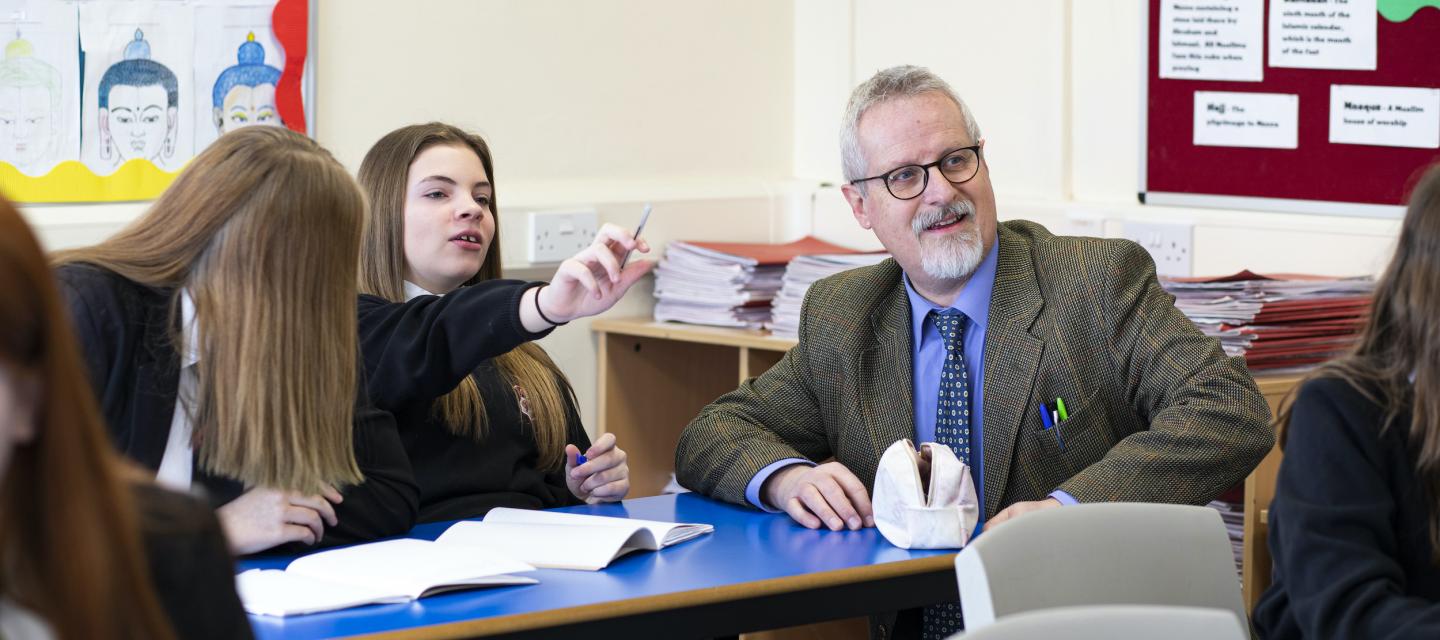Overview
At Noadswood we want all students to gain a deep level of understanding of the role of religious belief and behaviour in shaping peoples’ values. We also want students to appreciate that non religious beliefs and world views play an equally valid role in that process of developing values. We strive to develop in our students a vocabulary that can express the diversity of religious knowledge and understanding. We call this religious literacy and we believe that this is important as students learn about others and themselves. This can form a significant basis from which young people can explore and express ideas as they become adults in society and as part of the global community. We believe that the language we use in this curriculum area can contribute to emotional literacy and mental well-being of our students.
The structure and content of our curriculum
In year 7 students learn a methodology for learning about religions. They learn the Seven Dimensions of religion from Ninian Smart’s model. The key concepts of myth, sacred and philosophical come from this. The concepts are embedded in real world religious life and belief. Key individuals in history are studied to learn about how beliefs can affect behaviour.
Year 8 enables students to explore a major world religion and with guidance learn to identify and explain these dimensions for themselves. The end of year 8 moves onto more sophisticated thinking and explores philosophical ideas such as the existence of God and the relationship between Religion and Science.
Ethical thinking in year 9 makes use of the ideas from philosophy and students learn about how people make ethical judgements from religious and non- religious principles, for instance in medical ethics and in Sex and Relationships education.
Year 10 builds on students’ awareness of larger issues and students learn about more societal and global topics such as the holocaust, racism and crime and punishment.
How do students learn?
We use a concept led approach derived from the Hampshire Agreed Syllabus and learning is focused on core vocabulary. Understanding of concepts is always contextualised within a religious tradition and knowledge of religious belief and behaviour is key in demonstrating this. We also use the ‘Thinking Hard’ at Noadswood strategies to promote higher order thinking when dealing with content from the topics.
Curriculum Map
| Term 1 | Term 2 | Term 3 | |
| Year 7 | The 7 Dimensions of Religion. | The Dimensions of Sikhism. | Inspirational People who made a Difference |
| Year 8 | The Life of the Buddha and His teachings. Looking for the Seven Dimensions. | Philosophical thinking: Who am I? What is real? Arguments for and against the existence of God.
The relationship between Religion and Science | Relationships: religious and non- religious perspectives. |
| Year 9 | Introduction to Islam. | Relationships: religious and non- religious perspectives. Health and well- being: gender and identity, sexism and relationships. | Medical Ethics: questions of life and death. |
| Year 10 | Crime and Punishment: The aims of punishment in society. | Good and Evil : The Holocaust. | Religion and Equality: Racism in history. |
Skills that are developed in Religious Studies and Ethics
- Subject Knowledge – this will include knowledge of religious and non-religious viewpoints and practices.
- The ability to appreciate different perspectives and take on board others’ views.
- The ability to think independently and develop opinions.
- Empathy – the ability to understand others and the world we live in.
- The ability to develop critical thinking skills.
- Writing accurately when constructing a reasoned argument.
- Listening skills when others are expressing their viewpoint.
